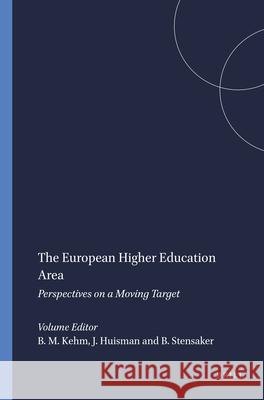The European Higher Education Area : Perspectives on a Moving Target » książka
The European Higher Education Area : Perspectives on a Moving Target
ISBN-13: 9789087907129 / Angielski / Miękka / 2009 / 344 str.
This volume presents the state of the art with respect to the most important elements of the Bologna process. The reflections on the past are also used to fuel the debate on the next decade. In 2008, the Flemish Ministry of Education and Training invited the editors to produce a volume with chapters discussing topics that are deemed to be most salient in the coming decade. Based on a tentative list of themes to be covered initially suggested by the Ministry, the editors have solicited contributions from appropriate scholars, experts on the specific topics. As a result this volume contains a rich set of chapters which address the promises and perils of the Bologna process and its preliminary outcomes. A difficult task, given that the process is a target on the move and even changing in nature during the process. It is also a difficult task because evidence can be interpreted differently paving the way for new paradoxes and complex interactions between the actors in the field. Consequently we are faced with new questions every time we believe answers to old questions have been found. The contributors to the volume not necessarily agree in their analyses of the Bologna process, but there is - nevertheless - a fair amount of consensus. According to their analyses governance, quality, mobility and diversity are the topics that have been most important to the Bologna process in the past, and will be at centre stage in future discussions. The book is meant to be a reflective exercise for those involved - in whatever way - in the Bologna process (researchers, teachers, managers, political decision-makers). The material is also relevant to those outside of the countries currently subscribing to the Bologna process.











